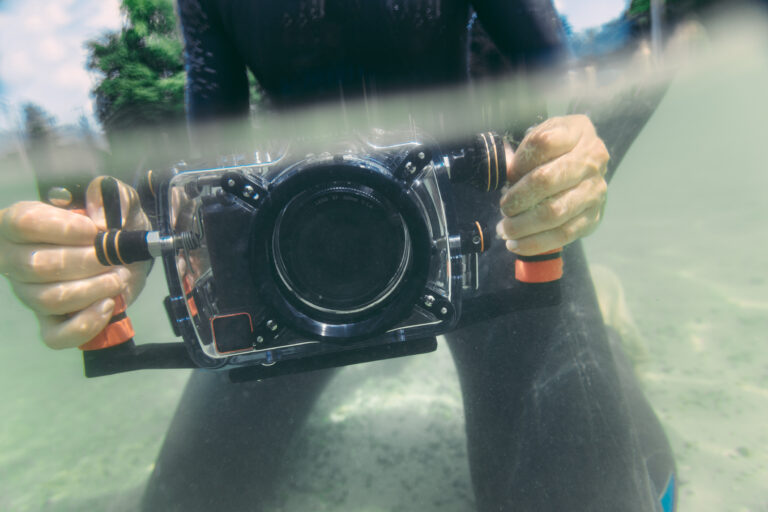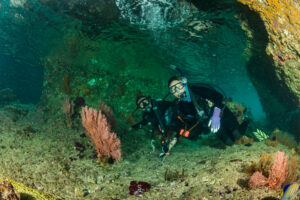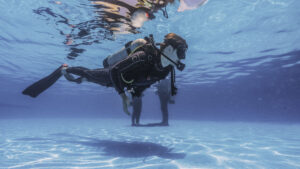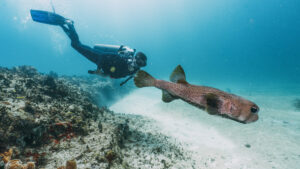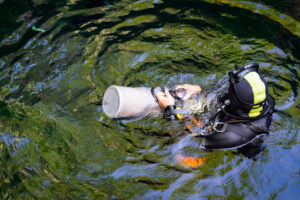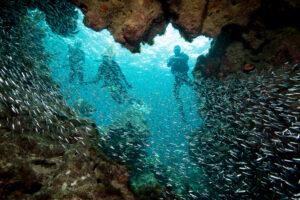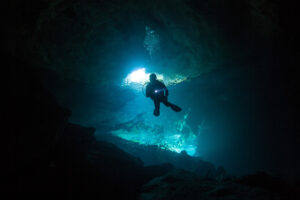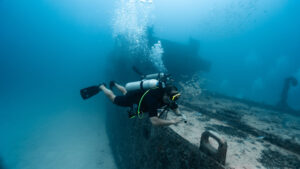What is the Association of Diving Contractors International (ADCI)?
The Association of Diving Contractors International (ADCI) is a key organization within the commercial diving industry, founded to enhance the safety, communication, and practices among its members and the industry at large. As the primary authority on safety and regulations for commercial diving operations, the ADCI’s standards are recognized and implemented globally. This entry aims to provide a comprehensive overview of the ADCI, detailing its history, mission, structure, and pivotal role in shaping industry standards.
History of the ADCI
The Association of Diving Contractors International was established in 1968 by a group of diving companies looking to create a unified set of safety standards for the commercial diving sector, which at the time was rapidly expanding due to the burgeoning offshore oil industry. Initially, the focus was on improving communication among firms to avoid accidents and ensure that operational procedures met a universally high standard. Over the years, the ADCI has evolved to become an authoritative body in the commercial diving community, leading initiatives and setting standards that have significantly influenced the safety and efficiency of underwater operations.
One of the key milestones in the ADCI’s development was the publication of its “Consensus Standards for Commercial Diving Operations,” which has been regularly updated to reflect technological advancements and new safety practices. These standards not only established guidelines for equipment and personnel but also set forth procedures for emergency response and accident prevention, which have become the benchmark for the industry worldwide.
Mission and Objectives
The primary mission of the ADCI is to promote safe practices in commercial diving through education, legislation, and regulation. It aims to ensure the health and safety of divers and other personnel involved in diving operations by establishing, maintaining, and updating industry standards. By doing so, the ADCI facilitates a framework that supports risk management and operational integrity in harsh underwater environments.
Objectively, the ADCI seeks to advance the commercial diving industry through:
- Advocacy: Representing the commercial diving industry before governmental and regulatory bodies to ensure that members’ voices are heard in the formulation of policies that impact the sector.
- Certification: Offering certification programs that validate the skills and knowledge of diving professionals, which in turn fosters a more competent and competitive workforce.
- Education: Providing educational resources and opportunities that promote career growth and adherence to best practices within the industry.
Membership and Structure
Membership in the ADCI is diverse, including small and large companies engaged in all manners of underwater operations, from offshore oil and gas to inland and hyperbaric construction. Membership categories are designed to accommodate a wide range of participants, including contractors, associates, and sustaining members from related industries. This inclusive membership model allows the ADCI to represent a broad spectrum of interests and concerns within the commercial diving community.
The governance structure of the ADCI is comprised of a board of directors elected by the members, which includes officers and representatives from various sectors of the industry. This board oversees the creation and implementation of policies and standards, guided by committees that focus on specific areas such as safety, training, and technical issues. This organizational framework ensures that the ADCI remains responsive to the needs of its members while maintaining the flexibility to adapt to new challenges and opportunities in the industry.
Standards and Certifications
Central to the ADCI’s mission is the development and dissemination of comprehensive safety and operational standards for commercial diving. These standards are meticulously crafted with input from industry experts and stakeholders to ensure they are both rigorous and practical. The ADCI’s standards cover a wide range of topics, including but not limited to, diver and personnel qualifications, equipment requirements, operational procedures, and emergency protocols.
The impact of these standards is profound, as they often exceed governmental regulations, ensuring that ADCI-certified operators are recognized for their commitment to safety and excellence. Compliance with these standards is not only a matter of best practice but also serves as a benchmark for industry reputation and operational success. Certification by the ADCI is thus highly sought after, as it signifies adherence to the highest levels of safety and professional integrity. Certifications are awarded based on rigorous assessments and are maintained through continuous training and reevaluation, ensuring that certified personnel and companies are up-to-date with the latest safety protocols and industry developments.
This focus on high standards and certification has not only improved safety outcomes but has also fostered a culture of continuous improvement and professional development within the industry.
Training and Education
The ADCI plays a critical role in the education and training of commercial divers and related personnel. This function is vital for ensuring that the workforce is well-prepared to meet the rigorous demands of the industry while adhering to the highest safety standards. The ADCI partners with certified training schools and educational institutions worldwide to offer a variety of training programs that are aligned with industry needs and comply with its standards. These programs cover a broad spectrum of skills, from basic diving techniques to complex underwater construction and salvage operations.
Key training programs endorsed by the ADCI include air and mixed-gas surface supplied diving, saturation diving, and underwater welding, among others. The association also supports ongoing professional development through workshops, seminars, and webinars that focus on new technologies, regulatory changes, and best practices in commercial diving. These educational initiatives not only enhance the competence and safety of divers but also contribute to their career progression and versatility in the field.
Safety Initiatives
Safety is a cornerstone of the ADCI’s initiatives. The association has been instrumental in developing safety campaigns and resources that address the unique risks associated with commercial diving. These include detailed safety manuals, emergency procedures, and incident reporting systems that help mitigate risks and provide critical data for improving safety standards. The ADCI also conducts safety audits and offers consultancy services to its members to ensure compliance with its standards and improve overall safety performance.
Statistical analysis of diving incidents and accidents plays a significant role in shaping ADCI’s safety initiatives. By analyzing data collected from its members and other industry sources, the ADCI identifies trends and risk factors that could potentially impact diver safety. This proactive approach has led to the development of targeted interventions that have demonstrably reduced accidents and injuries in the field.
Case studies highlighted in ADCI publications often illustrate successful safety improvements and serve as educational tools for the industry. These real-world examples provide valuable insights into the practical application of ADCI standards and the tangible benefits of adherence to safety protocols.
Legal and Regulatory Influence
The ADCI not only sets standards but also plays a proactive role in influencing legal and regulatory frameworks that govern commercial diving activities. The association works closely with governmental bodies, such as the Occupational Safety and Health Administration (OSHA) in the United States and similar organizations worldwide, to advocate for regulations that protect divers while supporting industry growth and technological innovation.
The ADCI’s regulatory impact is evident in several key areas, including the formulation of laws related to diver safety, environmental protection, and the use of underwater equipment. Through its advocacy efforts, the ADCI ensures that its members have a voice in the regulatory process, helping to shape policies that are both fair and effective.
Recent regulatory changes influenced by the ADCI include updates to commercial diving standards and the introduction of new guidelines for underwater welding and cutting, reflecting the association’s commitment to both safety and industry advancement.
Global Impact and Partnerships
The ADCI’s influence extends beyond the shores of the United States, impacting the global diving community. Through its extensive network of international members and partnerships with other diving and marine organizations, the ADCI fosters a more unified approach to commercial diving worldwide. These partnerships facilitate the exchange of knowledge, technology, and best practices, enhancing the safety and efficiency of diving operations across different regulatory environments.
Strategic collaborations with international bodies such as the International Marine Contractors Association (IMCA) enable the ADCI to align its standards with global expectations and requirements. This harmonization is crucial for ADCI members operating in international waters, where varying regulations can complicate compliance and operational planning.
Contributions to global diving safety standards by the ADCI are recognized internationally. The association’s commitment to excellence and safety in diving is often reflected in international forums and conferences, where ADCI representatives present research findings, safety statistics, and case studies that contribute to the global body of knowledge on commercial diving.
Challenges and Controversies
Like any leading organization, the ADCI has faced its share of challenges and controversies. These have stemmed from various sources, including disagreements over specific standards, the pace of regulatory changes, and the integration of new technologies that disrupt traditional diving practices. Criticisms have also arisen regarding the accessibility of ADCI certifications, perceived as costly or overly stringent by some stakeholders.
In response to these challenges, the ADCI has consistently sought to engage with its members and the wider community through consultations, surveys, and open forums. This inclusive approach helps to address concerns and integrate diverse perspectives into the development of standards and policies.
By navigating these controversies thoughtfully, the ADCI continues to uphold its reputation as a leader in commercial diving while adapting to the evolving needs of the industry.
Future Directions
The commercial diving industry is continuously evolving with advancements in technology and changes in the global economic landscape. The Association of Diving Contractors International (ADCI) is keenly aware of these dynamics and is proactive in its approach to future challenges and opportunities. Emerging trends such as the increased use of remotely operated vehicles (ROVs), augmented reality (AR) for underwater operations, and the expansion of renewable energy projects in offshore environments, are all areas where the ADCI is looking to expand its influence and guidance.
In response to these trends, the ADCI plans to develop new training programs and update its standards to incorporate the latest technologies and methods. This will likely include enhanced safety protocols for unmanned and remote-operated systems, as well as sustainability practices to minimize the environmental impact of diving operations. The association is also exploring partnerships with technology providers to facilitate the integration of innovative tools that can enhance the safety and efficiency of commercial diving.
The ADCI’s future projects also include initiatives aimed at broadening its global reach. This includes increasing its presence in emerging markets where commercial diving is becoming more prevalent due to local economic development, such as in Southeast Asia and parts of Africa. By establishing relationships with local businesses and regulators, the ADCI aims to foster a safer and more regulated environment for diving operations worldwide.
Key Takeaways
The Association of Diving Contractors International stands as a pivotal entity in the commercial diving industry. By promoting safety, professionalism, and ethical conduct, the ADCI has significantly contributed to shaping the industry’s standards and practices. Its continuous efforts to advance safety through education, advocacy, and the setting of standards have not only saved lives but also enhanced the operational capabilities of its members.
Throughout this entry, the significance of the ADCI has been illustrated through its historical context, mission, achievements, and ongoing contributions to the industry. The association’s proactive stance in addressing current challenges and future trends ensures that it remains at the forefront of the commercial diving industry. As the industry continues to evolve, the ADCI’s role in advocating for safety and professional integrity will undoubtedly continue to be of paramount importance.

